Description
This track will discuss and share emerging technologies and applications for the future of “Internet of Things”. Session 482 will share the current status and future possibilities of Metaverse: a type of Internet applications and social form that integrates a variety of new technologies like VR, AR, digital economy and blockchain, where users live and socialize with more stringent requirements. In session 477, we discuss and learn how and why “Semantic Communication” is becoming a key enabler for 6G AI-oriented and AI enabled networks for “Internet of Everything” and Metaverse. Session 498 will discuss why Fog/Edge Learning is important for the future IoT. As a vast and rapidly growing amount of data is being created at the network edge, Fog/Edge learning—learning where the data is created—will be necessary and essential for building future artificial intelligence (AI) and machine learning (ML) models.
Track Chairs
Dr. Tao Zhang, National Institute of Standards and Technology, USA
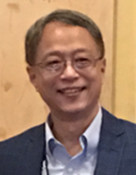
Dr. Tao Zhang, an IEEE Fellow, has been leading research, product development, and corporate strategies to create disruptive innovations and transform them into practical solutions, standards, and products. He is currently managing a research group focusing on transformational networks and services at the US National Institute of Standards and Technology (NIST). He was the CTO / Chief Scientist for the Smart Connected Vehicles business at Cisco Systems, and the Chief Scientist and the Director of multiple R&D groups working on wireless and vehicular networking at Telcordia Technologies (formerly Bell Communications Research). He cofounded the Open Fog Consortium and the Connected Vehicle Trade Association (CVTA) and served as a founding Board Director for them. Tao holds about 60 US patents and coauthored two books “Vehicle Safety Communications: Protocols, Security, and Privacy” and “IP-Based Next Generation Wireless Networks”, and 100+ peer-reviewed papers. He served as the CIO and a Board Governor of the IEEE Communications Society and as a Distinguished Lecturer of the IEEE Vehicular Technology Society.
Dr. Naohisa Ohta, Graduate School of Media Design Research Institute, Keio University, Japan

Naohisa Ohta has been engaged in research and development of high-quality digital media systems and networked digital media applications. After he received Dr. of Engineering in Electronics from Tohoku University, Japan, he joined NTT Laboratories in 1978 where he researched and developed high-quality audio-video communications systems and highly parallel processing systems. He joined Sony in 1998 and directed R&D for real-time networked applications. He served as a President of Broadband Applications Laboratories from 2002 to 2004. From 2005, he entered Research Institute for Digital Media and Content (DMC) at Keio University, Japan, as a research professor. He directed research projects on network applications using very high-quality digital motion pictures. He was also responsible for developing digital cinema specifications with Hollywood studios and established a laboratory to inspect digital cinema systems for theatrical cinema distributions and presentations. In 2008, he became a Professor of Graduate School of Media Design, Keio University (KMD) in Japan. Currently he is a senior researcher at Graduate School of Media Design Research Institute, Graduate School of Media Design, Keio University. He also has been active as a member of professional societies such as IEEE, SPIE, IEICE Japan, and so on. He served as the chair of many international conferences in signal processing and communications and contributed in technical activities such as an Editor-in-Chief for Special Issues on Emerging Technologies in Communications of IEEE Journal on Selected Areas in Communications (2013). He served as a Director of Asia Pacific Board (2000-2001), a member at large of Board of Governors (2004-2006) in IEEE Communications Society. He is an IEEE Fellow and a Life Member.
—————————————————————–
Indf-02-1: Metaverse: Building Metaverse of the Future
Abstract
One of the metaverse’s major highlights is web 3.0, and the way it facilitates the creative economy in the metaverse. The metaverse is essentially a digital economy with a creator economy, which is preferable to a centralized digital economy. Experts predict that the aggregate value of meta-economics will far outweigh the economies of nation-states. You can discover an open and permissionless version of a meta-economy in any open well-formed metaverse. And this meta-economy functionality is heavily reliant on metaverse’s two primary layers.
The interface layer and the financial computation layer are the two layers, each with its own set of capabilities and works closely with the other. The interface layer assists the end-user in experiencing the metaverse using various hardware and software technologies. This layer contains numerous types of contents, especially with the rise of NFTs and Play-to-Earn games. A well-formed interface layer also simulates a near-real-life environment, providing end-user with a variety of ways to engage. Hence a robust relation between supply and demand could be established, which helps the financial computation layer to operate healthily. The financial computation layer, on the other hand, is the foundation for conducting metaverse computation activities. It establishes a decentralized, democratic, and transparent framework for designing the metaverse’s creator economy logic. With a well-designed token economy, the financial computation layer makes possible the self-sufficiency of the whole metaverse.
The web 3.0 potential may be seen vividly in the metaverse’s background. It demonstrates the feasibility of establishing a prosperous economic system based on decentralized ledgers. Cryptography, worldwide accessibility, and transparency are all supported by the system.
And with the growth of Metaverse also has brought a whole new digital world with new dynamics of interactions, rules, and aspirations of the participants. The metaverse combines social and technology experiences with unparalleled levels of interoperability and immersive experiences. While the focus of the enterprises, communities and developers have been on facilitating seamless user experience and creating varied concepts, concerts over cyber frauds and threats such as have been accelerating as well. There is a need to achieve a balance between security and usability, and methods to complement in-session authentication to counter developing attack vectors.
Metaverse is a type of Internet application and social form that integrates a variety of new technologies like virtual reality, augmented reality, digital economy and blockchain, where users live and socialize within a digital universe, and with more stringent requirements (in terms of ultra-high reliability, capacity, energy efficiency, and low latency). With 5G cellular technologies now beginning to be deployed around the world, the research community has embarked on the pathway to define the sixth generation (6G) wireless system to be deployed in the year 2030.
In this panel, we will share our views on the current state and future possibilities of metaverse, and how new innovations in software, hardware, financial and security technologies are crucial for metaverse to become preeminent and pervasive.
Chairs
Dr. Tony Quek, IEEE Fellow, Cheng Tsang Man Chair Singapore University of Technology and Design
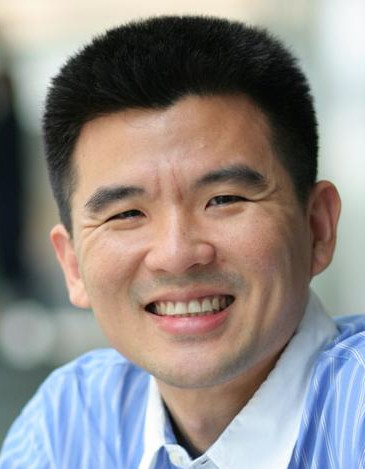
Tony Q.S. Quek received the B.E. and M.E. degrees in Electrical and Electronics Engineering from Tokyo Institute of Technology, Tokyo, Japan, respectively. At Massachusetts Institute of Technology (MIT), Cambridge, MA, he earned the Ph.D. in Electrical Engineering and Computer Science. Currently, he is the Cheng Tsang Man Chair Professor with Singapore University of Technology and Design (SUTD). He also serves as the Head of ISTD Pillar, Director for Future Communications R&D Programme, Sector Lead for SUTD AI Program, and the Deputy Director of SUTD-ZJU IDEA. His current research topics include wireless communications and networking, big data processing, network intelligence, URLLC, and IoT. Dr. Quek has been actively involved in organizing and chairing sessions and has served as a TPC member in numerous international conferences. He is currently serving as an Area Editor for the IEEE Transactions on Wireless Communications and an elected member of the IEEE Signal Processing Society SPCOM Technical Committee. He was an Executive Editorial Committee Member of the IEEE Transactions on Wireless Communications, an Editor of the IEEE Transactions on Communications, and an Editor of the IEEE Wireless Communications Letters. He is a co-author of a few books published by Cambridge University Press. Dr. Quek received the 2008 Philip Yeo Prize for Outstanding Achievement in Research, the 2012 IEEE William R. Bennett Prize, the 2016 IEEE Signal Processing Society Young Author Best Paper Award, the 2017 CTTC Early Achievement Award, the 2017 IEEE ComSoc AP Outstanding Paper Award, the 2020 IEEE Communications Society Young Author Best Paper Award, the 2020 IEEE Stephen O. Rice Prize, the 2020 Nokia Visiting Professorship, and the 2016-2020 Clarivate Analytics Highly Cited Researcher. He is a Fellow of IEEE.
Mr. Allen Hong, General Manager APAC, Supplyframe, Siemens Digital Industries Software
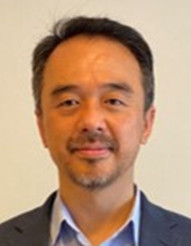
Allen Hong serves as General Manager for Supplyframe in APAC, Siemens Digital Industries Software. He brings over 20 years of experience leading technology sales, services, and operations for both public listed companies and software start-ups; and has repeatedly played key roles in successful launches, turnarounds, and growth strategies for global companies in Asia. Allen was the Co-Founder of Bom2Buy before it was acquired as a wholly owned subsidiary of Supplyframe. Prior to Supplyframe, he held a variety of senior positions at Ecommerce and Supply Chain solution providers such as Digital River, Distribution Service Technologies (acquired by Solera), RiverOne (acquired by Blue Yonder), E2open and Adexa. Allen holds EE and ORIE degrees from Cornell University. Allen is enthusiastic to help Generation Z who has keen ideas for fixing and improving what troubles the society most. He is a regular guest lecturer and speaker at Universities and Startup Accelerators.
—————————————————————–
Indf-02-2: Semantic Communication
Abstract
For over 70 years, the design of wireless communication systems has followed the principles established by Shannon, with the goal of reliable transmission of information bits. However, entering the 6G era with scenarios of Internet of Everything and metaverse, this approach does not meet and embrace the trend of machine intelligence. In many modern and future wireless applications, the goal of information transmission becomes increasingly for machine inference and information query at either the cloud or the edge. For these kinds of applications, transmitting the entire information/data is unnecessary and wastes the precious wireless bandwidth. Instead, what is important is that the semantics, i.e., the meaning, of the information/data should be successfully conveyed to the receiving end. Different from the traditional communications based on the Shannon’s theory, semantic communications, with the goal of conveying the semantics of information/data, allows more efficient use of the wireless spectrum and effectively reduces the transmission latency. For AI-orient 6G networks supporting the applications related to Internet of Everything and metaverse, semantic communications will prove its significant advantage in terms of efficiency and scalability. With the advance in machine learning, 6G future networks will be AI-based. The design of semantic communications naturally leverages the powerful deep learning, making feasible the end-to-end transmitter-receiver, joint source-channel-semantic coding design. The semantic communications will become an indispensable part of the 6G networks and exemplify the construction of future networks by the AI and for the AI.
In this session of the industry forum, renowned speakers from Europe, Asia, and US will share their ideas on semantic communications for 6G AI-orient and AI-enabled networks. The visions, road maps, technical challenges, and potential solutions of semantic communications in the future 6G AI-orient and AI-enabled networks will be discussed with views from both the academia and the industry.
Chairs
Dr. Chia-Han Lee, National Yang Ming Chiao Tung University
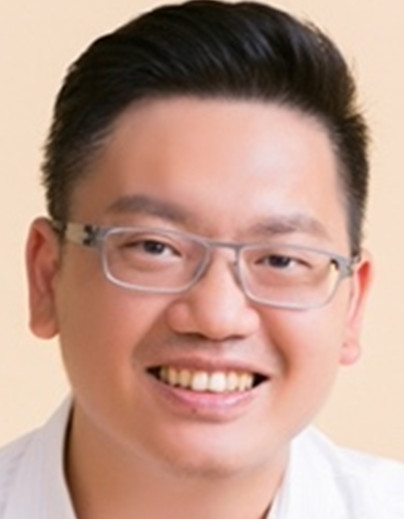
Prof. Chia-Han Lee received the B.S. degree from National Taiwan University in 1999, the M.S. degree from the University of Michigan, Ann Arbor, in 2003, and the Ph.D. degree from Princeton University in 2008, all in electrical engineering. From 1999 to 2001, he served in the ROC Army as a Missile Operation Officer. From 2008 to 2009, he was a Postdoctoral Research Associate with the University of Notre Dame, USA. From 2010 to 2016, he was with Academia Sinica as an Assistant Research Fellow and then an Associate Research Fellow. In 2016, he joined National Yang Ming Chiao Tung University as an Associate Professor and Hwa Tse Roger Liang Junior Chair Professor (2018-2019), and became a Professor in 2019. He received Intel Labs Distinguished Collaborative Research Awards in 2014 and was named Intel Labs Distinguished Collaborator in 2015 (for years 2010-2015). He serves as Industry Presentations and Demonstrations Co-Chair for IEEE GLOBECOM 2017, Symposium Co-Chair for IEEE GLOBECOM 2019, ICC 2021, ICC 2022, and ICC 2023, and Tutorials Co-Chair for IEEE GLOBECOM 2020. His research interest is deep learning-based wireless communications and networks. He is an Editor of IEEE Communications Letters from 2014 to 2018, an Editor of IEEE Transactions on Wireless Communications from 2014 to 2019, and an Editor of IEEE Transactions on Communications since 2019. He is the Chair of IEEE ComSoc Taipei Chapter from 2021 to 2022.
Dr. Zhijin Qin, Queen Mary University of London

Dr. Zhijin Qin received her B.S. degree from Beijing University of Posts and Telecommunications in 2012, and the Ph.D. degree on Electronic Engineering from Queen Mary University of London (QMUL) in 2016. She was a Postdoctoral Research Associate at Imperial College London from 2016 to 2017, and then a Lecturer at Lancaster University from 2017 to 2018. Since 2018, she has been a Lecturer with the School of Electronic Engineering and Computer Science at QMUL. Her research interest includes deep learning enabled semantic communications, end-to-end communications, deep compressive sensing, intelligent resource allocation in various applications, such as UAV communications and reconfigurable intelligent surface. She is serving as an area editor of IEEE JSAC Series on Communications and Networks, an associate editor of IEEE Transactions on Communications, IEEE Communications Letters, and IEEE Transactions on Cognitive Communications and Networking. She has served as the track-chair for IEEE VTC fall 2019, IEEE GLOBECOM 2020.
Invited Speakers
Deniz Gündüz, Imperial College London
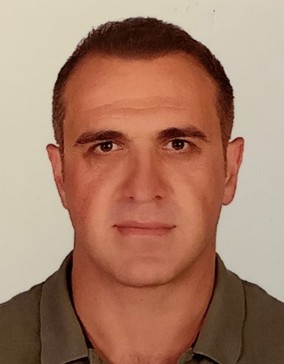
Deniz Gündüz received his M.S. and Ph.D. degrees in electrical engineering from NYU Tandon School of Engineering (formerly Polytechnic University) in 2004 and 2007, respectively. After his PhD, he served as a postdoctoral research associate at Princeton University, as a consulting assistant professor at Stanford University, and as a research associate at CTTC in Spain. ln 2012, he joined the Electrical and Electronic Engineering Department of Imperial College London, UK, where he is currently a Professor of Information Processing, and serves as the deputy head of the Intelligent Systems and Networks Group. He is also a part-time faculty member at the University of Modena and Reggio Emilia, Italy, and has held visiting positions at University of Padova (2018-2020) and Princeton University (2009-2012). His research interests lie in the areas of communications and information theory, machine learning, and privacy. Dr. Gündüz is a Fellow of the IEEE, and a Distinguished Lecturer for the IEEE Information Theory Society (2020-22). He is serving in various editorial roles for the IEEE Transactions on Information Theory, Transactions on Communications, and Transactions on Wireless Communications. He is the recipient of the IEEE Communications Society – Communication Theory Technical Committee (CTTC) Early Achievement Award in 2017, Starting (2016) and Consolidator (2022) Grants of the European Research Council (ERC), and several best paper awards.
Nikolaos Pappas, Linköping University
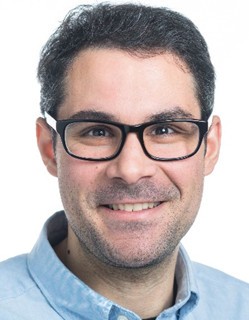
Nikolaos Pappas (Senior Member, IEEE) received the B.Sc. degree in computer science, the B.Sc. degree in mathematics, the M.Sc. degree in computer science, and the Ph.D. degree in computer science from the University of Crete, Rethymno, Greece, in 2005, 2012, 2007, and 2012, respectively. From 2005 to 2012, he was a Graduate Research Assistant with the Telecommunications and Networks Laboratory, Institute of Computer Science, Foundation for Research and Technology—Hellas, Heraklion, Greece, and a Visiting Scholar with the Institute of Systems Research, University of Maryland at College Park, College Park, MD, USA. From 2012 to 2014, he was a postdoctoral Researcher with the Department of Telecommunications, CentraleSupélec, Gif-sur-Yvette, France. He is currently an Associate Professor with the Department of Computer and Information Science, Linköping University, Linköping, Sweden. His main research interests include the field of wireless communication networks with an emphasis on semantics-aware communications, energy harvesting networks, network-level cooperation, age of information, and stochastic geometry. Dr. Pappas has served as the Symposium Co-Chair of the IEEE International Conference on Communications in 2022 and the IEEE Wireless Communications and Networking Conference in 2022. From 2013 to 2018, he was an Editor of the IEEE COMMUNICATIONS LETTERS. He was a Guest Editor of the IEEE INTERNET OF THINGS JOURNAL on “Age of Information and Data Semantics for Sensing, Communication and Control Co-Design in IoT.” He is also an Editor of the IEEE TRANSACTIONS ON COMMUNICATIONS, the IEEE Transactions on Machine Learning in Communications and Networking, the IEEE/KICS JOURNAL OF COMMUNICATIONS AND NETWORKS,and the IEEE OPEN JOURNAL OF THE COMMUNICATIONS SOCIETY and an Expert Editor for invited papers of the IEEE COMMUNICATIONS LETTERS.
Jihong Park, Deakin University
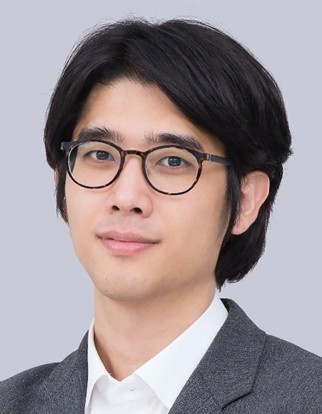
Jihong Park is a Lecturer at the School of IT, Deakin University, Australia. He received the B.S. and Ph.D. degrees from Yonsei University, Seoul, Korea, in 2009 and 2016, respectively. He was a Post-Doctoral Researcher with Aalborg University, Denmark, from 2016 to 2017; the University of Oulu, Finland, from 2018 to 2019. His recent research focus includes distributed machine learning, control, and resource management, as well as their applications to 6G semantic, AI-native, and non-terrestrial communications. He served as a Conference/Workshop Program Committee Member for IEEE GLOBECOM, ICC, and INFOCOM, as well as NeurIPS, ICML, and IJCAI. He received the IEEE GLOBECOM Student Travel Grant and the IEEE Seoul Section Student Paper Prize in 2014, the 6th IDIS-ETNEWS Paper Award, and FL-IJCAI Best Student Paper Award in 2022. Currently, he is an Associate Editor of Frontiers in Data Science for Communications and in Signal Processing for Communications. He is a Senior Member of IEEE and a Member of ACM.
—————————————————————–
Indf-02-3: From Federated to Fog Learning
Abstract
Machine learning techniques have traditionally relied on centralized model management, where the computationally-intensive processes of model training and inference are carried out in cloud datacenters. The increase in demand for latency-sensitive, data-intensive applications by end users of contemporary network systems, however, present challenges for centralized computing paradigms in terms of network resource utilization, service delays, and looser privacy/security guarantees. This has motivated recent breakthroughs in distributed machine learning techniques such as federated learning, which has garnered significant attention in industry and academia over the past few years. Developing such techniques for fog computing, an emerging architecture which aims to orchestrate and manage computing resources across the continuum of nodes between the cloud and the Internet of Things (IoT), is a vibrant area of interest.
The proposed session “From Federated to Fog Learning” will provide a venue for discussing innovations at the intersection of fog networks/computing and distributed machine learning. We will invite speakers covering various aspects of integrating machine learning with the wireline and wireless networks comprising the cloud-to-things continuum in fog computing, with a particular focus on industrial applications. The session will focus on the extension of distributed machine learning along two main axes: machine learning “for” the network and machine learning “over” the network. For instance, there is interest in distributed reinforcement learning techniques that leverage distributed computation power and data to solve optimization problems arising in network control, user clustering, resource management, and interference alignment, all of which will be used “for” a wireless network to optimize its performance. On the other hand, machine learning models for user/device applications like object detection or next word prediction may be trained “over” a wireless network of mobile devices via federated learning, where communication impairments such as limited network bandwidth and link congestion affect the training process and performance (e.g., in terms of convergence speed and accuracy). Consequently, it is desirable to optimize networks both for and through the implementation of distributed learning.
Chairs
Dr. Christopher G. Brinton Purdue University

Christopher G. Brinton is an Assistant Professor in the School of Electrical and Computer Engineering at Purdue University. His research interest is at the intersection of networked systems and machine learning, specifically in distributed machine learning, fog/edge network intelligence, and data-driven network optimization. Dr. Brinton was the recipient of the 2022 NSF CAREER Award, 2022 ONR Young Investigator Program (YIP) Award, and 2022 DARPA Young Faculty Award (YFA). He currently serves as an Associate Editor for IEEE Transactions on Wireless Communications, in the ML and AI for wireless area. Prior to joining Purdue, Dr. Brinton was the Associate Director of the EDGE Lab and a Lecturer of Electrical Engineering at Princeton University. Dr. Brinton received the PhD (with honors) and MS Degrees from Princeton in 2016 and 2013, respectively, both in Electrical Engineering.
Dr. Seyyedali Hosseinalipour SUNY at Buffalo

Seyyedali Hosseinalipour received the B.S. degree in electrical engineering from Amirkabir University of Technology, Tehran, Iran, in 2015 with high honor and top-rank recognition. He then received his M.S. and Ph.D. degrees in electrical engineering from North Carolina State University, NC, USA, in 2017 and 2020, respectively. He received the ECE Doctoral Scholar of the Year Award (2020) and ECE Distinguished Dissertation Award (2021). He is currently a postdoctoral researcher at Purdue University, working on developing the new topic area “Intelligent 5G/6G Networks.” He will join the department of Electrical Engineering of University at Buffalo (SUNY) as an assistant professor in Fall 2022. His research interests include the analysis of modern wireless networks and communication systems, distributed machine learning, and optimization of next-generation intelligent networks.
Dr. Carlee Joe-Wong Carnegie Mellon University
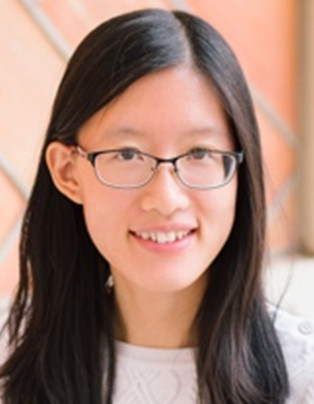
Carlee Joe-Wong is the Robert E. Doherty Associate Professor of Electrical and Computer Engineering at Carnegie Mellon University. She received her A.B. degree (magna cum laude) in Mathematics, and M.A. and Ph.D. degrees in Applied and Computational Mathematics, from Princeton University in 2011, 2013, and 2016, respectively. Dr. Joe-Wong’s research is in optimizing networked systems, particularly on applying machine learning and pricing to resource allocation in data and computing networks. From 2013 to 2014, she was the Director of Advanced Research at DataMi, a startup she co-founded from her Ph.D. research on mobile data pricing. Her research has received several awards, including the NSF CAREER Award in 2018.


